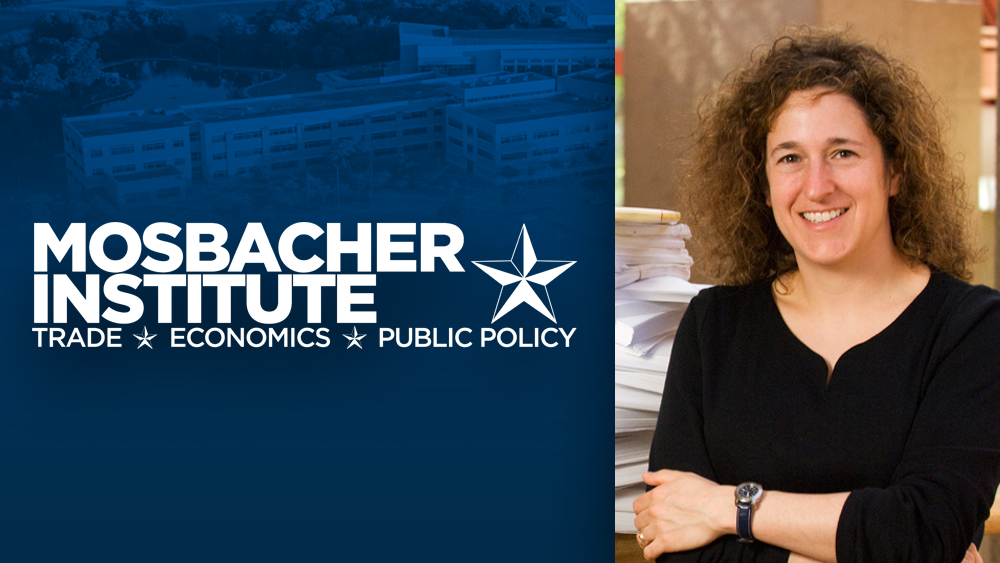
The Mosbacher Institute’s 2017 Education Policy Workshop featured Dr. Susanna Loeb from Stanford University who spoke on “More than a Nudge: the potential of low-cost, behavioral interventions to improve educational experiences and outcomes, the case of Ready4K.” Her colleague in the Ready4K research and Bush School professor, Dr. Kalena Cortes, introduced Dr. Loeb to a full crowd at the George Bush Presidential Library and Museum.
Given the importance of adults in the lives of children, Dr. Loeb and her research team are interested in behavior interventions to improve parenting—providing information and resources to parents to help them maximize their goals. One challenge they knew would need to be overcome is cognitive load, or the overwhelming number of choices and competing demands that we all, and particularly parents, face. They also knew they wanted to get away from low-access and high-cost initiatives like parenting workshops and in-house visits, so they developed a curriculum with information and tips for parents on how to interact with their children delivered three times per week using short text messages. With 97% of adults under the age of 50 possessing cell phones and 98% of those adults using texting, text-messaging offers a promising low-cost avenue to help nudge parents toward the behaviors that will help their children succeed.
By collecting data from pre-enrollment surveys, teachers, parent surveys, and 1-on-1 literacy assessments the researchers were able to evaluate whether the program did lead to improved outcomes. They found there was some improvement for all kids in the program, but significant improvement for the children who started with the lowest performance levels on literacy assessments. With early success in San Francisco, Ready4K is now being offered in other parts of the country, looking to see if the lessons learned in California can be transferred to places like Dallas or Miami-Dade County, as well as adapting the program to add social-emotional behaviors, math support, and other interventions where a text messaging curriculum might benefit students of all ages.
The event finished with audience questions ranging from particulars about the research, to possible avenues for future research in text-based curriculum. Dr. Lori Taylor, Director of the Mosbacher Institute, closed the program with thanks and applause for Dr. Loeb, and then invited all to a reception in the Library Rotunda.
In addition to her workshop presentation, during her visit to the Bush School Dr. Loeb also led a breakfast discussion with students concentrating in education policy, visited an education policy class, and met with several faculty members about shared research interests.

